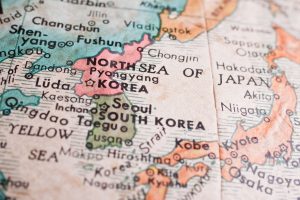South Korea has rejected refugee status for ethnic Chinese people who have been “stateless” since they fled North Korea years ago, two of the applicants and an activists’ group said Wednesday.
Unlike North Korean defectors, who receive citizenship, almost-free apartments, and other economic assistance in South Korea, ethnic Chinese from North Korea are denied access to such benefits if they maintained Chinese nationality in North Korea. About 30 of them have been designated as “stateless” in South Korea after authorities found they were attempting to pose as North Korean nationals and detained them, observers say.
The “stateless” designation makes it extremely difficult for them to get jobs and receive basic government-provided services. Four of them subsequently applied for refugee status in 2019, saying they wanted better treatment because their families have lived in North Korea for generations and suffered political suppression and economic difficulties similar to what most North Korean citizens face.
Last week, however, South Korea’s Justice Ministry notified them that their refugee claims had been turned down, said Kim Yong-hwa, a North Korean defector-turned-activist who helped the four with their refugee applications.
Kim’s organization provided The Associated Press with a photo of the ministry notification to an applicant surnamed Yoon. According to it, the ministry said he didn’t appear “to have experienced threats that amounted to persecution in China and North Korea.” It also said the ministry could not help but determine he is a Chinese national based on its review of his testimony and comments by South Korea’s spy agency.
Kim said the three other applicants received near-identical notifications.
The Justice Ministry said later Wednesday it won’t disclose the results of its review of individual refugee applications because of privacy issues.
The rejections were widely expected because South Korea’s acceptance rate for refugee status applications has been less than 2 percent in recent years.
“It totally doesn’t make sense to rule that there was (no evidence) that they suffered oppressions in North Korea. They can get killed if they return to North Korea and get caught there,” Kim said.
He previously said at least one ethnic Chinese was executed in North Korea after failing to resettle in South Korea and returning home.
Reached by phone, Yoon and another applicant, Cho Guk-gyeong, confirmed the rejections.
“I have no hopes at all now as my refugee application was turned down,” Cho said in a statement provided by Kim. “I have nowhere to return. I want to live with a minimum level of human dignity.”
Kim said the ministry has told the four applicants it could improve their alien residential status if they file a petition asking for government help for their settlement in South Korea. Kim said he doesn’t understand why they have to file a petition asking for leniency but they planned to check what improvements in their status they could get.
In previous interviews with the AP, Cho and other ethnic Chinese said they considered themselves as North Koreans because they were born and grew up in the North. They said they were allowed to maintain Chinese nationality in North Korea and visit China once or twice a year for cross-border business. They said authorities monitored them more intensely than North Korean nationals.
They said they would face harsh punishment if they returned to North Korea. They also said it would be very difficult to resettle in China because they don’t speak Chinese, have lost touch with relatives there, and it could take years to get local residence cards in China. China’s government also has a track record of forcibly repatriating North Korean refugees, despite concerns from rights groups that returnees are at risk of torture or execution.
Cho spent one year in prison and Yoon 20 months in a government-run detention center for lying about their nationality in North Korea.
Some experts say 3,000-5,000 ethnic Chinese live in North Korea and are the only foreigners with permanent residency rights among North Korea’s 26 million people. About 34,000 North Koreans have fled to South Korea for economic and political reasons since the late 1990s.

































